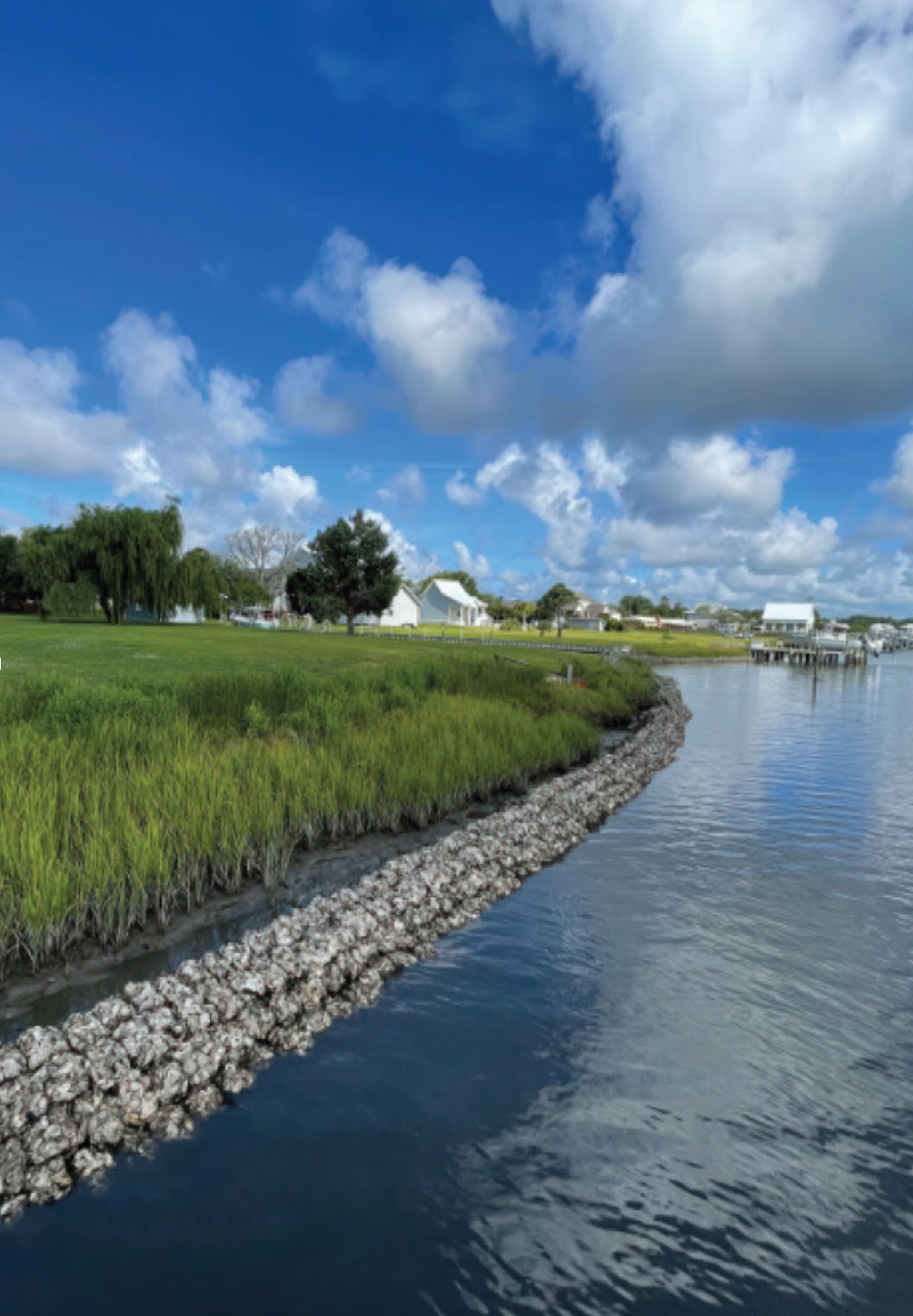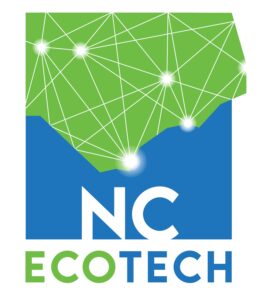
Advancing EcoTech in Eastern North Carolina

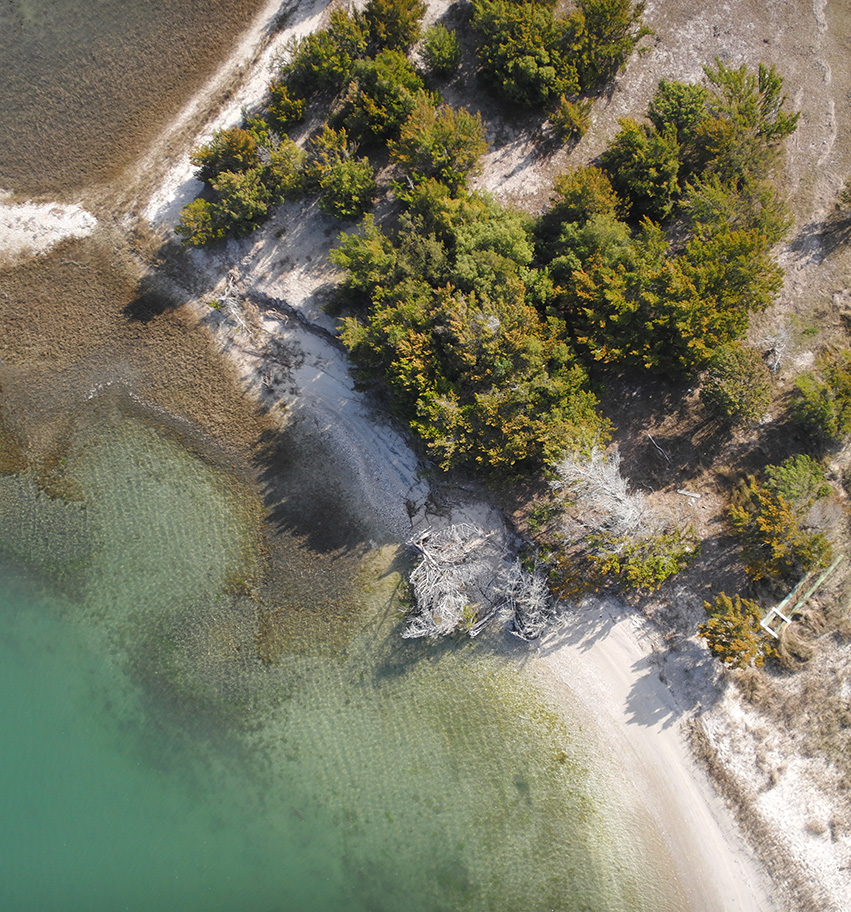
WHAT WE DO
Ecosystem Technology or “EcoTech” is an emerging branch of applied science that combines understanding of living ecological systems with technological advances to ensure safe and sustainable solutions.
By assessing the needs of a community and working with a diverse partnership network, NC EcoTech innovates development to launch businesses that provide economic development and workforce growth.
NC EcoTech strives to advance techological solutions in two areas: Sustainable Aquaculture and Coastal Resilence.
SUSTAINABLE AQUACULTURE
Aquaculture is the cultivation or farming of fish, shellfish and aquatic plants. Sustainable Aquaculture focuses on environmental, economic, and social sustainability to improve capacity and utilize land effectively for the aquaculture sector. Aquaculture farms can exist in the water (ocean, lakes, rivers, ponds) or on land in controlled tanks. Aquaculture facilities provide a healthy, controlled environment for growing fish to market size for sale to consumers. Many aquaculture facilities also provide ecological sustainability through creation of systems for fish waste that provide nutrients for plants.
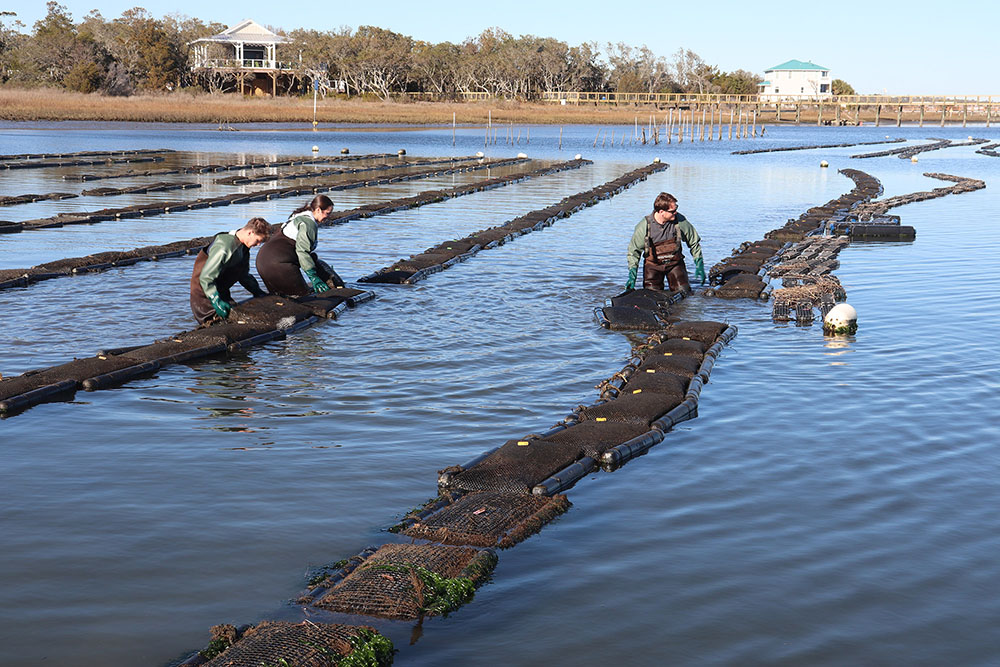
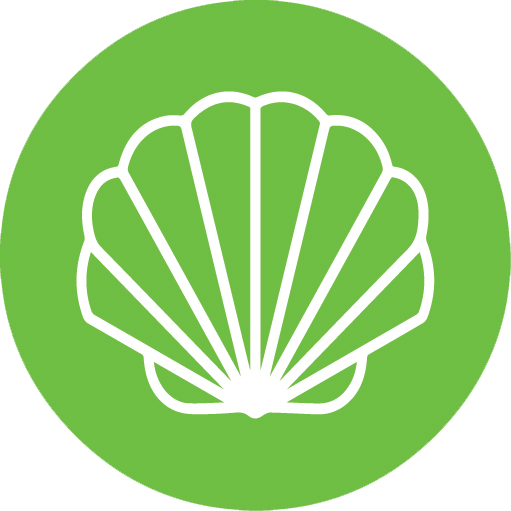
Shellfish
Obtaining community input to oyster and clam aquaculture including development and growth of hatcheries, nurseries, shellfish restoration, and development of alternate species of fish.
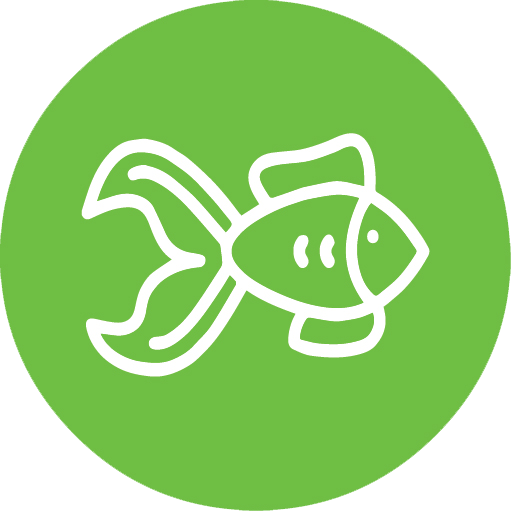
Ornamental
Producing freshwater and marine display animals for the pet trade and public aquariums.
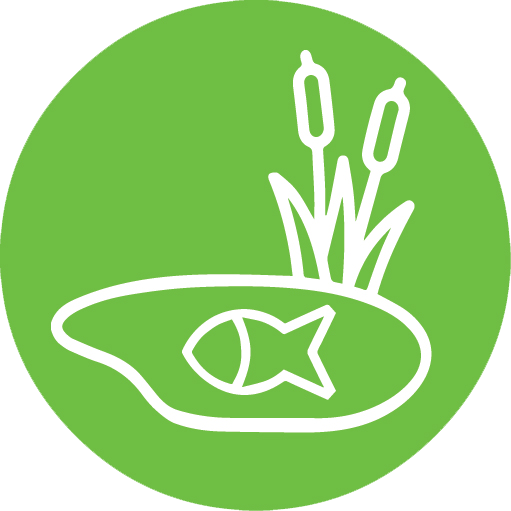
Pond-based Systems
Creating ecological systems that produce freshwater, marine fish, and crustaceans in ponds, as well as creating and prototyping advanced pond systems and in-pond raceways.
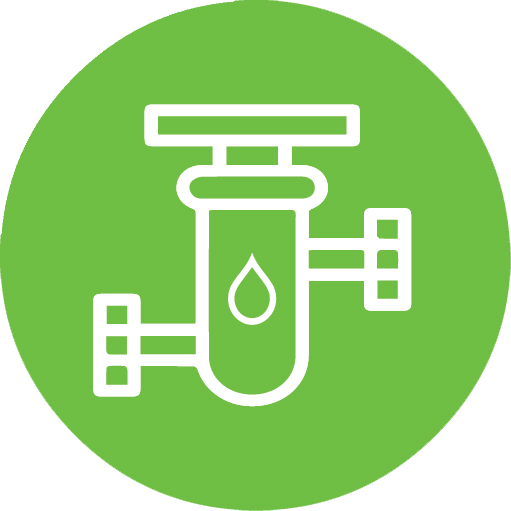
Recirculating Aquaculture Systems (RAS)
Obtaining community input to oyster and land based closed systems that utilize filtration technology for waste removal and water quality management. This category also includes intensive clearwater RAS, biofloc, and aquaponics.

Conservation, Restoration, and Enhancement
Aquaculture development and innovation for conservation of threatened and endangered species, restoration of habitats, and enhancement of ecosys- tems for exploited resources.
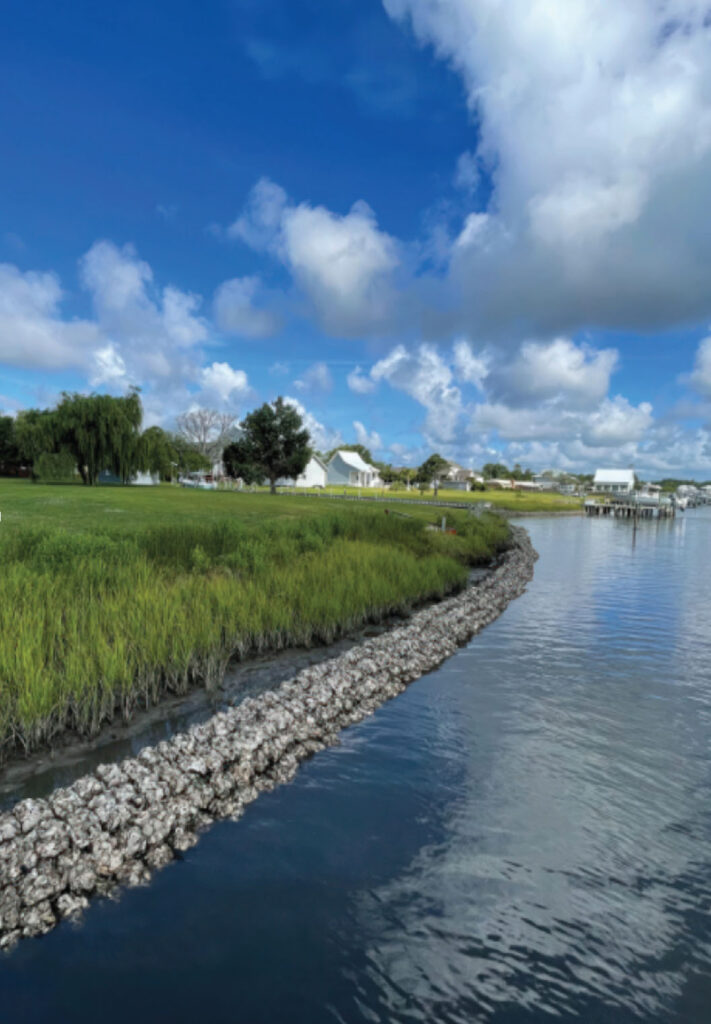
COASTAL RESILIENCE
Coastal Resilience is the ability to adapt to changing conditions, withstand, and rapidly recover from natural events such as hurricanes, floods, and climate change. Advances in innovative technologies will optimize alert systems, create live mapping of events, provide proactive mitigation, and restore and create ecological habitats to mitigate shoreline erosion. NC EcoTech will collect community driven needs for Coastal Resilience to advance technology innovation in the following Coastal Resilience subsectors:
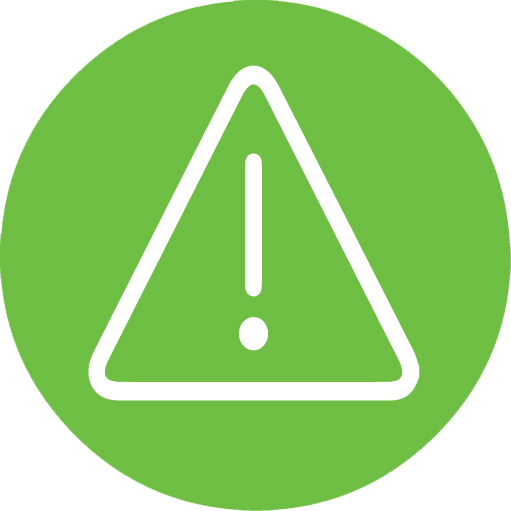
Alert Systems
Creating alert systems for ongoing monitoring and recovery for floods, stormwater, and sea-level rise. The focus is on proactively developing systems that mitigate the effects of natural disasters, contaminants, and the effects of climate change.
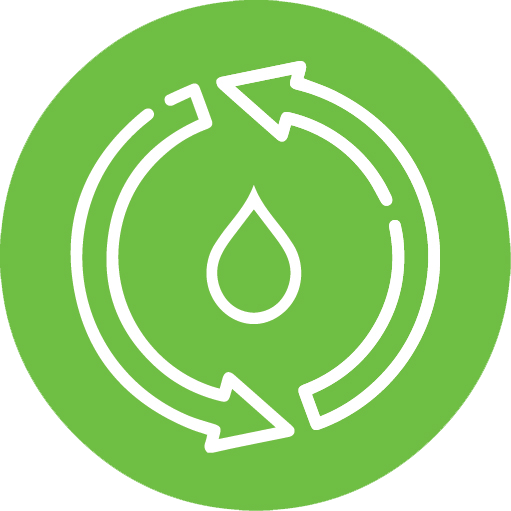
Coastal Restoration and Cultivation
Enhance the ability to mitigate the effects of climate change. For example, seagrass is now dying off in the waterways due to an increase in temperatures in North Carolina. Is there a way to make the sea grass more resilient and increase the reproduction of the seagrass to repopulate the waterways and maintain the ecological environment?

Nature-Based Solutions
Instead of building seawalls that have a negative impact on the ocean and marine environment, let’s create solutions like living shorelines which reduce carbon load, increase water cleanliness, and reduce tidal impacts on beaches while nourishing the marine life in the ocean.

Mapping and Geoinformatics
Use of mapping technologies and drones for measuring the shifting environment and developing mitigation techniques for sea-level rise and salt water intrusion.

Water Quality Measuring and Monitoring
Let’s create the ability for proactive, ongoing water quality monitoring and ways to mitigate or re-direct water sources when contaminants are present.
Economic Development
Economic development involves the strategic growth of businesses, industries, and workforce capabilities to enhance the prosperity of the community. Our approach focuses on sustainable business practices, innovation, and job creation to build resilient economies that can withstand environmental challenges. By leveraging local resources and fostering a collaborative ecosystem, we aim to create opportunities for entrepreneurs and establish new industries that provide lasting economic benefits.


Community Ideas
Obtaining input from the community helps to identify specific local needs and challenges to guide our projects.

Diverse Partnership Network
By collaborating with a broad spectrum of partners, we foster the creation of innovative technology solutions tailored to the region, bridging the gap between scientists and entrepreneurs.

Project Design
Innovative ideas are turned into practical solutions by developing detailed project plans, prototyping concepts, securing funding, and providing specialized training. Our approach ensures that projects are sustainable, scalable, and impactful, addressing both environmental and economic challenges in the region.
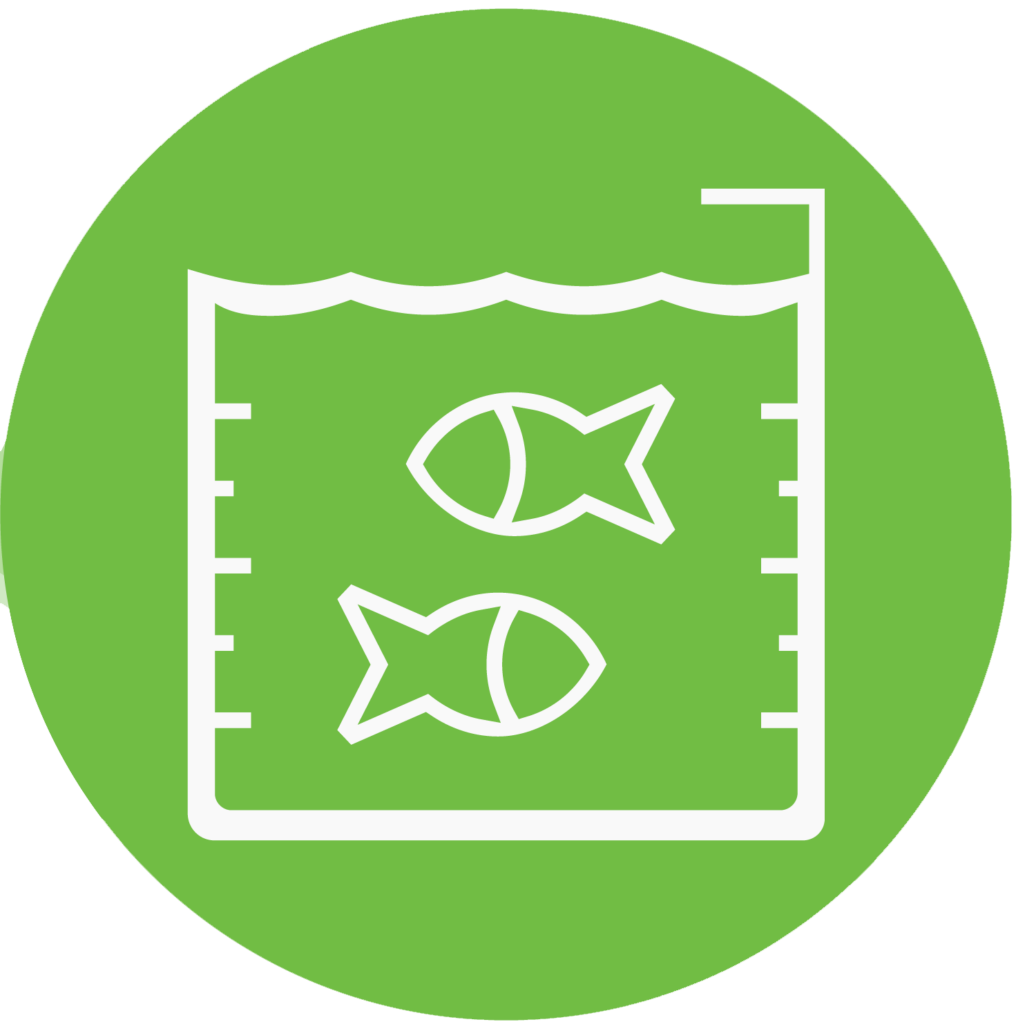
Coastal Business Development
Launching new businesses and expanding existing businesses will drive economic growth and job creation in coastal areas.

Workforce Development
New technology can equip individuals with the skills and training needed to meet the demands of current and emerging job markets ensuring that new businesses have access to a skilled and capable workforce that can drive economic growth and innovation.
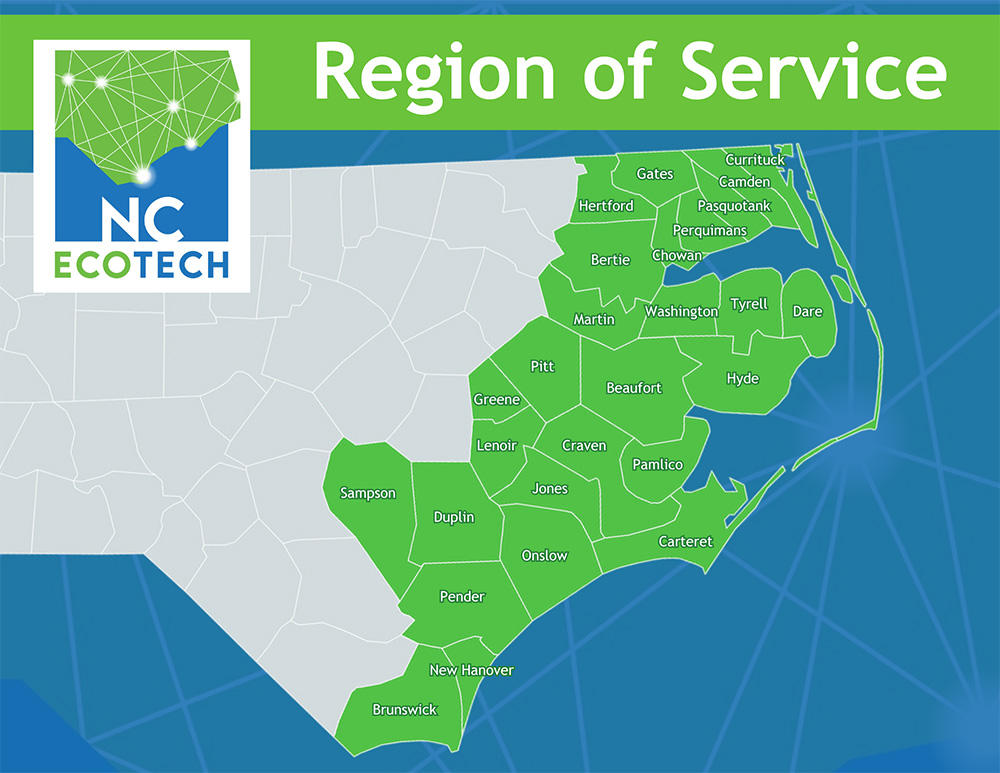
The NC EcoTech Region of Service (ROS) includes 27 rural counties in eastern North Carolina, home to 1.4 million people. NC EcoTech is focused on coastal resilience and sustainable aquaculture innovations that will benefit both underserved and climate-vulnerable communities in the region of service. Counties were selected based on innovation assets, shovel-ready projects, Coastal Area Management Act (CAMA) status, and workforce commuting relevance.

